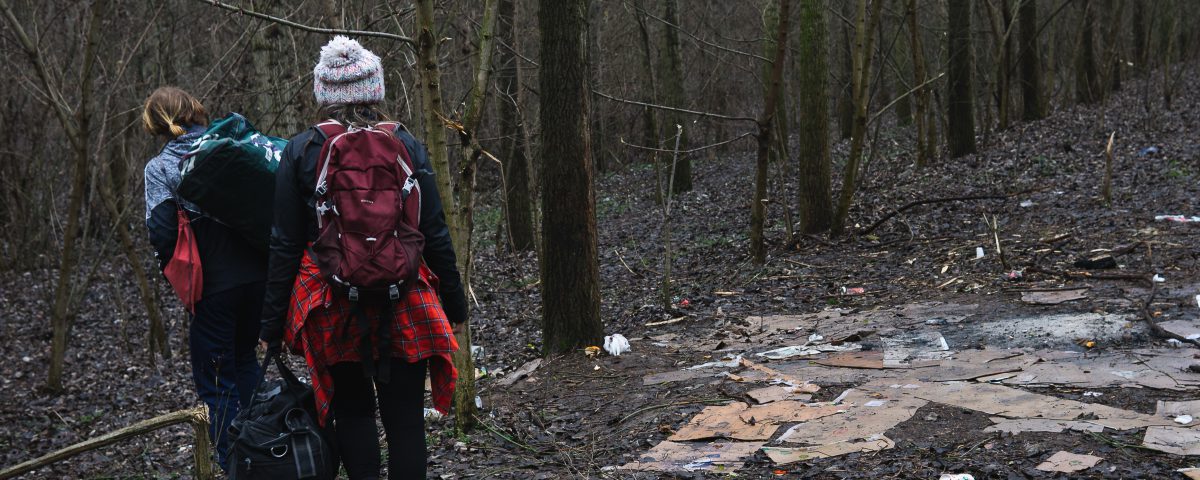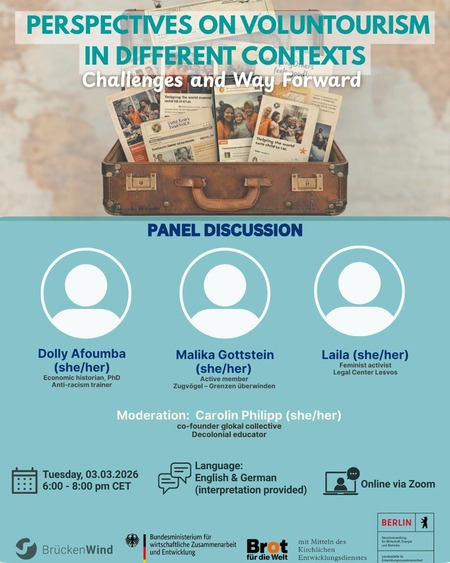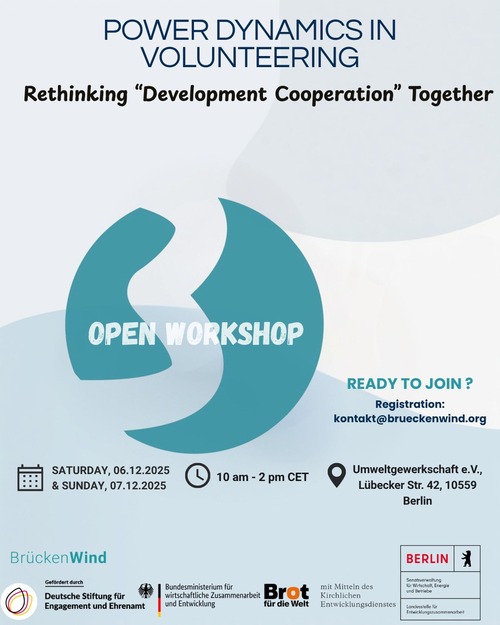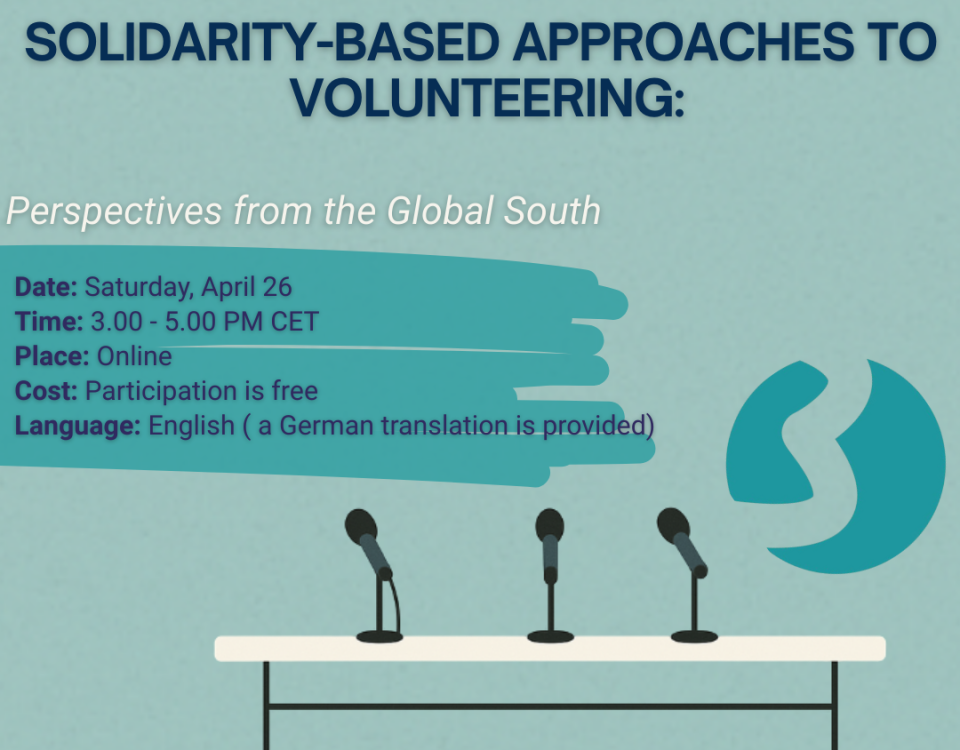Why voluntary support work at the external borders is necessary and imperatively political
Voluntary engagement means that people work in solidarity with fellow human beings against unequal or unjust conditions within society of their own accord, without expecting anything in return. This is usually necessary when not enough or even nothing is done at the political or structural level to counteract such conditions of unequal distribution of resources; or when those are created by state laws or structural frameworks themselves.
According to this definition of voluntary work, we see a great need for intervention from civil society when looking at the current situation for people on the move at Europe’s (external) borders. Violence and inhumane conditions have prevailed for years in numerous camps and squats for people seeking for protection from war and persecution in Europe. Their basic rights are massively restricted in the process. A solution to the situation is not in sight, despite the continuing urgency. On the contrary: the ongoing violence is accepted and exercised by EU member states, and is deliberately used as a deterrent to further migration – even though this has been proven not to work. The commitment of so many people in Europe symbolizes opposition to the state-led policy of border violence: It is a demonstration of people who are working together in solidarity for a better and fairer world, and who will not let themselves be diverted from this goal by bureaucratic and legal obstacles.
In this blog entry, we would like to take a closer look at the impact of voluntary support work with and for people seeking protection at Europe’s external borders: What are the opportunities, responsibilities and also dangers of the emerging project landscape?
Subsumption: Political will instead of humanitarian crisis
The inhumane conditions at Europe’s external borders, with well-known and infamous examples such as the old Moria refugee camp on Lesvos or Lipa in Bosnia and Herzegovina, are not temporary humanitarian emergencies or crises. The current situation is rather a direct consequence of European policies that aim outsource responsibility for people seeking protection. Coalitions with the Turkish government of Erdogan or the paramilitary militia of the so-called “Libyan coast guard” are made to prevent refugees from reaching European soil. Instead of implementing legal and safe ways to migrate to Europe and apply for asylum, those seeking protection who reach the borders are beaten up or detained. Push-backs (i.e. forced repatriation to other states without the possibility of applying for asylum) are the order of the day. In case of being given the opportunity to apply, they are often forced to stay in the border regions for months or even years without proper accommodation, financial resources and access to education or the labour market. The EU and its member countries – who present themselves as advocates of human rights and solidarity – show no serious interest in the protection of people and democratic rights.
Support work as stopgap measures
For years, the numerous volunteer projects at the European borders have been trying to fill the gaps that have arisen for people seeking protection. In this context, voluntary support work describes the attempt of a few to demonstrate humanity in a situation of exclusion and violence. This is, of course, first and foremost to be seen in an exclusively positive light. It must be noted, however, that such voluntary measures cannot be long-term solutions to the situation.
Vital support work and primary care should never have to be the sole responsibility of voluntary engagement of civil society, nor should it take place mainly without compensation and under poor working conditions. The implementation of most volunteer projects relies upon private donations, as well as the resources and capacities of individuals. This can never replace public coverage or inclusion in social systems, however, this should always be the common goal in order to create humane conditions in the long term and sustainably.
The fact that NGOs are currently providing direct assistance at the external borders is still necessary, but must not become an end in itself. The actual obligation to receive and protect people who are persecuted and/or endangered in their home country is the responsibility of the states. This has nothing to do with charity, but is the right of each and every refugee according to the 1951 Geneva Refugee Convention signed by 146 states.
And here we come to see the paradox of volunteering, somewhat simplified: as soon as NGOs take over state duties, states can withdraw from responsibility, since their tasks are already being fulfilled elsewhere. And so the care of refugees suddenly becomes an “optional service”. This means that while civil solidarity is (after all) great enough not to stand by and watch human lives being put at risk, the acute pressure on the political level to act and implement support measures decreases.
Due to the continuing situation, voluntary projects have become more permanent in recent years and more long-term supply networks are emerging. This is both productive and problematic. We understand voluntary work as necessary stopgap measures until another (better) solution for the care and support of people is established. Nevertheless, it is important to emphasize: projects based on voluntary work and private donations should not be set for the long term, but only for the short to medium term, in order to claim the actual responsibility on the part of the states. This means that the replacement or continuation of the measures in some form must always be targeted simultaneously. Accordingly, a complementary part of the stopgap measures of volunteer projects must be to design a structural goal and advocate for it on political levels.
Voluntary engagement at the external borders is political
We would like to expand on this idea: Voluntary work at the external borders always includes a critique of and thus also a resistance against current border policies, without which the projects would not even need to exist. Volunteer projects and the engagement of individuals always take place within the violent structures of the asylum system, but try to resist it in different ways: they offer shelters for people on the move, create opportunities for action, fight the constant state of deprivation, at least in part, and enable spaces for networking. They can therefore target people’s self-efficacy and autonomy in a way that is not provided for anywhere else in the system. Therefore, quite a few projects claim to want to restore at least some human dignity in this fundamentally undignified situation.
This means that the projects always include the identification of grievances in their basic idea. By trying to catch state failure or deliberate inaction, NGOs indict them. Some projects, in addition to their support work in the field, emphasise this aspect by publicly denouncing the conditions in the camps, starting petitions or documenting and publishing reports on push-backs and violent attacks by police on refugees and asylum seekers. However, most projects and volunteers neglect the aspect of criticising the political system due to a lack of time and capacity, because they naturally have to set priorities.
In the long term, we see emerging problems regarding the very important and solidarity-based volunteer landscape at the external borders in three ways:
1) There is a perpetuation of projects that were originally designed for short-term crisis management, as the political assumption of responsibility fails to materialise. The emerging aid structures are either unavoidably confined within the state and legal framework, or they are constantly struggling against bureaucratic and administrative hurdles. (it is furthermore not uncommon for the projects or aid measurements to be criminalised, but that is another topic).
2) For various reasons – mostly lack of time and acute need for action in the face of the situation on the ground – politicisation of the work and a productive linking of volunteering with activism and political demands comes up short.
3) As a consequence of these two issues, there is an unintentional stabilisation and legitimisation of the anti-human border regime in the long run.
Sources / Read more:
Borderline-europe. 2021. Kriminalisierung von Migration und Solidarität.
Pichl, Maximilian. 2021. Der Moria-Komplex. Medico International.
Zick, Tobias. 09.09.2021. Gefangen im Dauerprovisorium. Süddeutsche Zeitung.
ProAsyl. 2016. Nach dem Türkei-Deal: Libyen als nächster Türsteher Europas?







